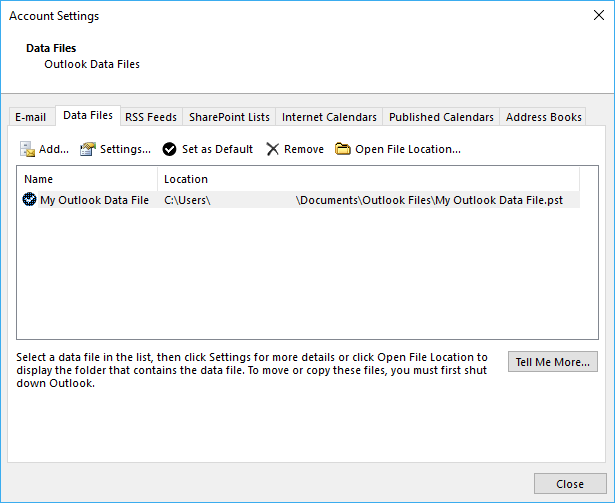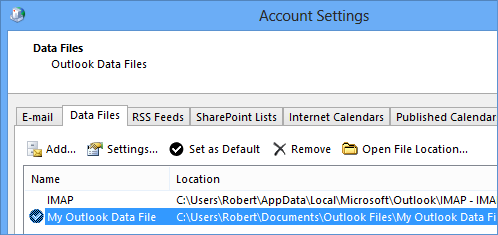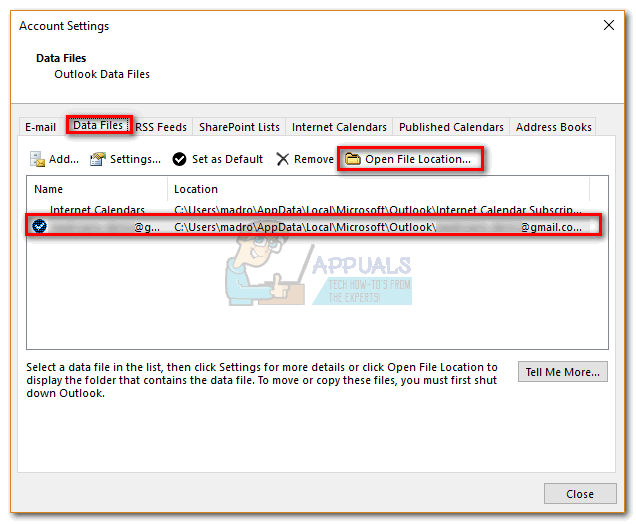

- #Local folder in outlook 2013 how to#
- #Local folder in outlook 2013 archive#
- #Local folder in outlook 2013 free#
#Local folder in outlook 2013 archive#
To review and probably change the archive options, click AutoArchive Settings…. To start archiving immediately, click Yes. Since Outlook 2010, Auto Archive is not enabled by default, though Microsoft Outlook will periodically remind you to do so: The detailed steps for different Outlook versions follow below. The Outlook Auto Archive feature can be configured to move old emails and other items to a designated archive folder automatically at a regular interval, or to delete old items without archiving.
#Local folder in outlook 2013 how to#
How to archive emails in Outlook automatically
If you have an Outlook Exchange account with an online archive mailbox, archiving in Outlook is disabled. However, you can archive the Contacts folder manually. Contacts are never auto-archived in any Outlook version. If you want to back up your archived items, you will have to make a copy of your archive.pst file and store it in a safe location, e.g. An archive file is not the same as Outlook backup. Exporting copies the original items to the export file, but does not remove them from the current folder, nor from the main. Archiving is not the same as exporting. pst file into an archive.pst file, it is displayed in the Outlook Archive folder, and is no longer available in the original folder. As soon as an old item is moved from the main. PST is the only file type that can be archived.  For most account types, Microsoft Outlook keeps all emails, contacts, appointments, tasks and notes in a. To avoid confusion and to prevent questions like "Why doesn't my Outlook Auto Archive work?" and "Where are my archived emails in Outlook?" please remember the following simple facts.
For most account types, Microsoft Outlook keeps all emails, contacts, appointments, tasks and notes in a. To avoid confusion and to prevent questions like "Why doesn't my Outlook Auto Archive work?" and "Where are my archived emails in Outlook?" please remember the following simple facts.  Permanently delete old emails and other items as soon as they have passed the specified aging period.ĥ facts you should know about Outlook Archive. Move emails and other items from their current folders to an archive folder.
Permanently delete old emails and other items as soon as they have passed the specified aging period.ĥ facts you should know about Outlook Archive. Move emails and other items from their current folders to an archive folder. #Local folder in outlook 2013 free#
This way, it helps you reduce the size of your mailbox and get some free space back on your C:\ drive (if you choose to store the archive file somewhere else).ĭepending on how you configure it, Outlook Archive can perform one of the following tasks: pst file into a separate archive.pst file that you can open from Outlook any time you need it. Technically, archiving transfers older items from the main. Outlook Archive (and AutoArchive) moves older email, task and calendar items to an archive folder, which is stored in another location on your hard drive.
Outlook archive not working - reasons and solutions.  Archive Outlook emails by received date. Empty Deleted Items and Junk E-mail folders automatically. Change the location of an existing Outlook archive file. Where is the Outlook archive file stored?. How to archive in Outlook manually (all or selected folders). And this tutorial will teach you how to archive emails and other items in different versions automatically or manually. It is available in all versions of Outlook 365, Outlook 2019, Outlook 2016, Outlook 2013, Outlook 2010 and earlier. That's where the Outlook Archive feature comes in. If your mailbox has grown too big in size, it stands to reason to archive old emails, tasks, notes and other items to keep your Outlook fast and clean. You will learn how to configure each folder with its own auto archive settings or apply the same settings to all folders, how to archive in Outlook manually, and how to create archive folder if it doesn't appear automatically. The tutorial explains how to archive emails in Outlook 2019, Outlook 2016, Outlook 2013, and other versions.
Archive Outlook emails by received date. Empty Deleted Items and Junk E-mail folders automatically. Change the location of an existing Outlook archive file. Where is the Outlook archive file stored?. How to archive in Outlook manually (all or selected folders). And this tutorial will teach you how to archive emails and other items in different versions automatically or manually. It is available in all versions of Outlook 365, Outlook 2019, Outlook 2016, Outlook 2013, Outlook 2010 and earlier. That's where the Outlook Archive feature comes in. If your mailbox has grown too big in size, it stands to reason to archive old emails, tasks, notes and other items to keep your Outlook fast and clean. You will learn how to configure each folder with its own auto archive settings or apply the same settings to all folders, how to archive in Outlook manually, and how to create archive folder if it doesn't appear automatically. The tutorial explains how to archive emails in Outlook 2019, Outlook 2016, Outlook 2013, and other versions.








 0 kommentar(er)
0 kommentar(er)
